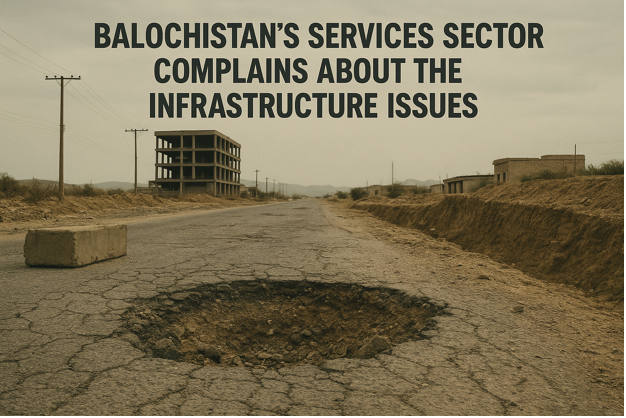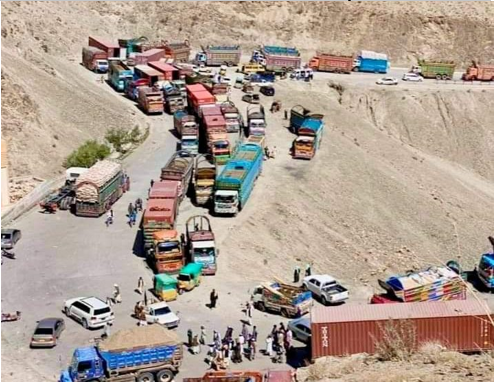INP-WealthPk
Ahmed Khan Malik
The services sector in Balochistan suffers from inadequate infrastructure, marring the province’s economic development and job creation.

Business representatives and professionals told Wealth Pakistan that despite the province’s rich natural resources and strategic location, the lack of reliable roads, electricity, internet connectivity, and basic urban facilities continues to restrict growth in the services industry, which includes trade, transport, tourism, health, and education.
Stakeholders argue that while Balochistan has witnessed some government projects in recent years, these have yet to yield tangible benefits for those engaged in the services sector. In Quetta, traders complain of poor road conditions that disrupt the supply of goods, while transporters say the absence of a modern and well-maintained highway system adds costs and time to their business operations.

In Quetta, the province’s largest city and commercial hub, infrastructure issues are visible in almost every part of daily life.
Frequent power outages, poor drainage systems, and overcrowded roads affect small businesses and service providers alike. Shopkeepers say their businesses lose customers during prolonged electricity cuts, while internet disruptions affect online services, banking, and even students attending virtual classes.
“Even the smallest cities in other provinces are better equipped with facilities than Quetta,” said Ismail Kakar, a local café owner. “If we cannot get stable electricity or internet, how can we compete with businesses in Karachi or Lahore?”
Transporters also complain about the poor road conditions. “Every year, our vehicles suffer major damages because of broken roads,” said Muhammad Shahbaz, a transporter, who runs buses between Quetta and Karachi. “Not only is it costly, but it also discourages people from travelling. For us, the lack of infrastructure is like paying hidden taxes.”
Education and health, two key components of the services sector, are also affected by weak infrastructure. Schools in many districts lack basic facilities like clean water, electricity, and proper buildings, making it difficult for teachers and students to deliver quality results. Similarly, health facilities in remote areas remain underdeveloped, with inadequate equipment and poor road access that delays patients from reaching hospitals.
Health professionals argue that emergency services are particularly affected. “In some areas, it takes hours to bring a patient to a hospital because of broken roads and lack of ambulance services,” said Arif Baloch, a doctor in Hub district. “Lives are lost simply because infrastructure is not developed.” Experts say that unless urgent measures are taken, the gap between Balochistan and other provinces will continue to widen.
“Investment in basic infrastructure is essential for unlocking the province’s potential. Improved roads, digital connectivity, and urban planning could not only boost the services sector but also generate employment and attract investment,” said Babar Nosherwani, member of Quetta Chamber of Commerce and Industry.
He urged both the federal and provincial governments to allocate higher funds for infrastructure development in Balochistan and demanded greater involvement of local communities in planning projects, arguing that local voices can help identify priority areas.
He noted neglecting infrastructure in the services sector may undermine national development goals. “With services contributing a growing share to Pakistan’s GDP, improving Balochistan’s services industry could help balance regional disparities and ensure more inclusive growth,” Babar underscored.
Credit: INP-WealthPk









